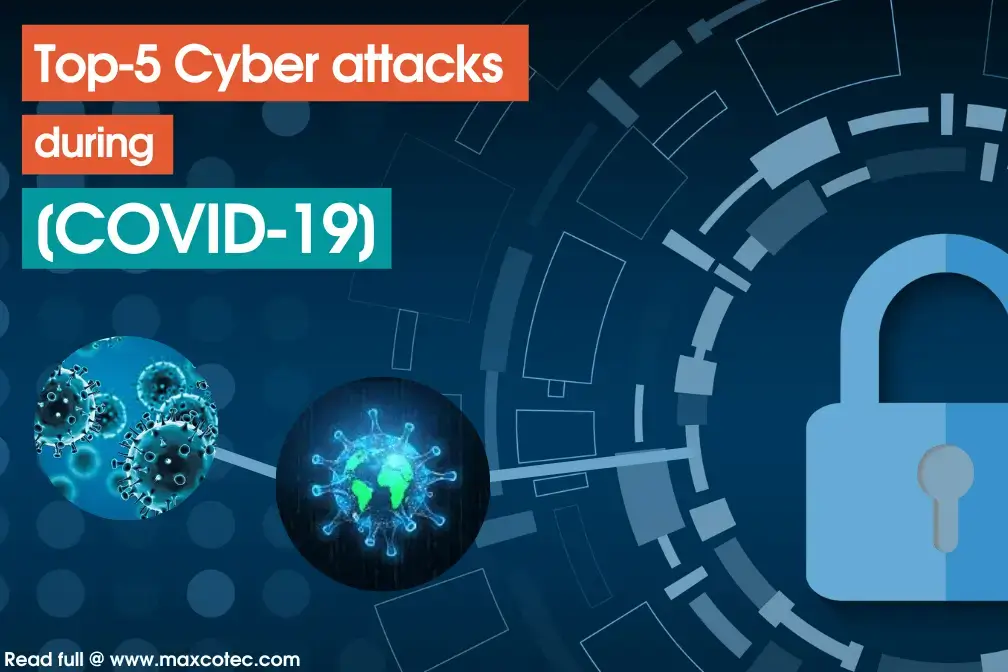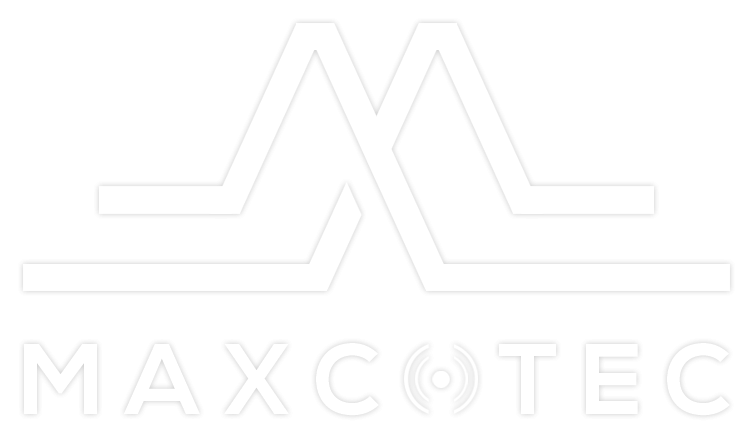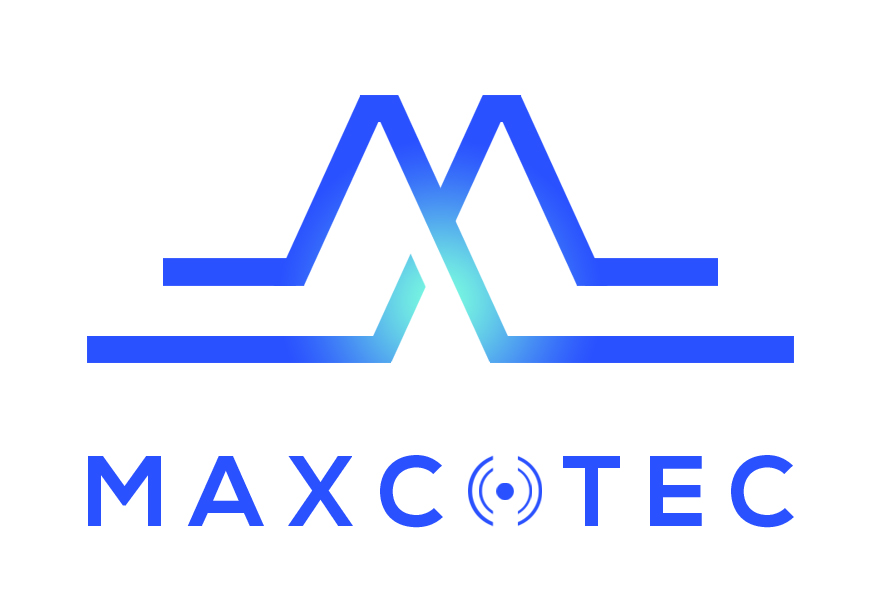Cyber crimes during covid-19 pandemic has increased to unprecedented levels. The entire world witnessed devastation due to the COVID-19 pandemic. Countless lives were lost, and the lockdowns created immeasurable amounts of damage to small businesses. Shutting down world economies also resulted in the cyber criminals having a historic year and accomplishing some of the most prolific hacks in history.
Google has registered over 2 million phishing sites as of January 2021, a 27% increase from January 2020. Additionally, according to the 2020 internet crime report, the Internet Crime Complaint Center received a recorded 791,790 claims from Americans.
With cybersecurity concerns at an all-time high and a rise in malware attacks, we’ve compiled the top 5 cyber-attacks that took place during the COVID-19 pandemic. Hopefully, the historic year will influence governments and individuals to take online security seriously and make changes moving forward. Lets have a look at top 5 cyber crimes occurred during covid-19 pandemic.
Acer
The Taiwanese computer hardware manufacturer Acer was the victim of the highest-paid ransom to date at an equivalent of 50 million dollars in March of 2021. Notorious hacking group REvil breached the company’s financial system and provided ‘documents that include financial spreadsheets, bank balances, and bank communications’ as proof, according to BleepingComputer.
Ravil requested a record ransom of 214,151 Monero (XMR), an equivalent of 50 million USD, in return for decrypting the stolen files. The ransom is the highest ransomware attack known to date, besting the Dairy Farm cyberattack in 2019 of 30 million USD, also carried out by the group of hackers.
BleepingComputer reports the hackers possibly exploited a Microsoft Exchange server to gain access to Acer’s financial system.
Colonial Pipeline Cyber Attack
While cyber-attacks are devastating to the victims, the impact is rarely felt on a global scale. The United States witnessed a nationwide panic after the Russian ransomware gang DarkSide hacked the network of the Colonial Pipeline. The pipeline carrying 2.5 million barrels of diesel, petrol, and jet fuel daily was shut down for the first time in its 57-year history due to the attack.
Across the nation, Americans filled their vehicles and spare gas tanks, triggering an hour-long ques.
Colonial Pipeline paid the DarkSide 4.4 million USD in cryptocurrency to unlock real-time data and return the 100GB of raw data. The CEO of the Colonial Pipeline admitted to paying the ransom to get the system and gasoline pipeline back online. Since then, NPR reports the US Justice Department has recovered 2.3 million of the ransom.
The SolarWinds Cyber Attack
In the early days of the COVID-19 pandemic, SolarWinds, a major US information technology firm, was targeted by cyber criminals. The breach is believed to be carried out by Russian hacker group Nobelium and initially took place in December of 2019. Nobelium injected malicious code into SolarWind’s ‘Orion’ system, unknowingly to the information technology company. According to SEC documents, SolarWinds has 33,000 customers that utilize the Orion system to manage their IT resources.
Later in the year, a suspicious software update was sent out to Orion users. A reported 18,000 users unknowingly created a backdoor created by Nobelium by updating their internal IT systems. Nobelium used the backdoor to download malware into the systems of the Orion users giving them access to spy on the companies and organizations using SolarWinds service.
The SolarWinds attack is so prevalent because of the notoriety of SolarWinds clients. Multiple Fortune 500 companies and government agencies were breached during the hack. The Wallstreet Journal reports ‘US agencies, including parts of the Pentagon, the Department of Homeland Security, the State Department, the Department of Energy, the National Nuclear Security Administration, and the Treasury — were attacked. So were private companies, like Microsoft, Cisco, Intel, and Deloitte, and other organizations like the California Department of State Hospitals, and Kent State University.’
Companies and US agencies showed how vulnerable their digital infrastructure could be. For months, the attack went on without any knowledge of the breach, gaining access to private and government records. The damage is still being calculated but should serve as a wake-up call to focus on cybersecurity, especially when government agencies outsource their IT resources to private entities.
JBS Cyber Hack
In the past, it has been rare to see industries brought to their knees by cybercriminals. The attacks are usually breaches in security, exposing the financial records of a company’s clients. However, during the COVID-19 pandemic, two significant hacks shut down vital industries in the US.
JBS SA, the largest meat producer globally, fell victim to cyber-attacks, shutting down all US beef plants and ‘wiping out output from facilities that supply almost a quarter of American supplies.’
The attack took place just three weeks after the Colonial Pipeline was forced to shut down by Russian hackers. JBS was breached by Ravil, the group behind the largest ransomware hacks in history.
While we don’t have specific details on how the Russian group gained access to the San Paulo-based meatpacking giant, it’s clear they targeted North American and Australian servers.
WAWA Malware Attack
In late January 2020, a massive amount of credit card data was posted on a popular dark website, Joker’s Stash. The popular fraud bazaar boasted over 30 million card accounts spanning 40 states, calling the dump ‘BIGBADABOOM-III.’
The card data was later tracked back to WAWA, a US East Coast convenience store chain. A month prior, the retail franchise reported a major security breach, admitting hackers installed malware in their POS systems. The breach affected every single one of its 860 stores. Because the attack went undetected for months, hackers could continue to rack up personal card information.
WAWA’s cyber-attack is one of the largest on record. ZD Net reports that US cards were on sale for $17 a card, and international cards were priced at around $210 per card on Joker’s Stash.
A Wake-Up Call to Invest in Cyber Security
The recent hacks are evidence that hackers are a step ahead of government agencies and private companies. If vulnerabilities exist, cyber criminals will expose them. Hopefully, the US and other world leaders will use the rise in cyber-attacks during the COVID-19 pandemic to invest in cyber security and digital infrastructure.







